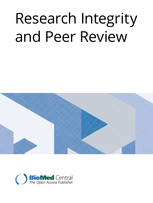 It started as a simple email exchange over authorship. But it angered one researcher so much that it ended a 20-year collaboration.
It started as a simple email exchange over authorship. But it angered one researcher so much that it ended a 20-year collaboration.
In January 2017, a chemist based in Mexico had finished writing a paper describing the structure of a molecule. Sylvain Bernès, at the Instituto de Física Luis Rivera Terrazas, asked his co-author—the head of the lab where the molecule had been synthesized 10 years ago—to review the draft and include any co-authors involved in the initial work.
The researcher added three co-authors to the paper. Bernès became concerned. He wanted to follow the International Committee of Medical Journal Editors (ICMJE) authorship recommendations as strictly as possible. As far as Bernès could tell, none of the new authors had actually contributed to the work, potentially violating the recommendation about authorship contributions. Continue reading Unintended consequences: How authorship guidelines destroyed a relationship






